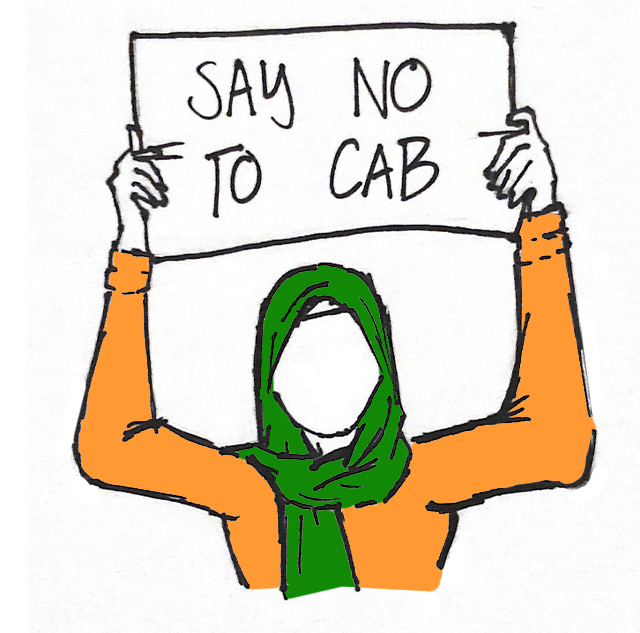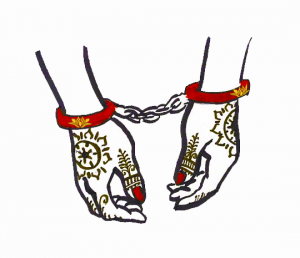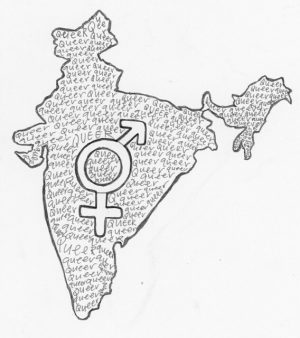The Citizenship Amendment Bill poses a threat to a secular India
February 19, 2020
On Dec. 11, 2019, the Rajya Sabha, India’s upper-house Parliament, passed the Citizenship Amendment Bill. The bill intends to fast-track the citizenship of Hindu, Jain, Sikh, Buddhist, Parsi, and Christian refugees from Afghanistan, Bangladesh, and Pakistan. The bill stands in support of all refugees, with some glaring exceptions: Muslims, Jews, and atheists. However, the exclusion of Muslim refugees was the most surprising, given India’s 200 million-strong Muslim population.
This bill, proposed by the BJP (India’s majority Hindu nationalist party), has faced harsh criticism from many Indians—and understandably so. Prime Minister Narendra Modi and the BJP have been pushing a Hindu nationalist agenda onto India at the expense of the Muslim population by demagoguing. Instances include Modi’s allegiance to the RSS (a Hindu extremist group), prominent examples of beef lynchings (mob violence against people of cultures/religions that eat beef), and anti-Muslim rhetoric from BJP government officials. This bill is no exception and adds to a long list of grievances.
Yet, this bill remains more controversial than many of the BJP’s past actions.
India’s internal battle for secularity is a fight to keep India the nation it has always been. Islamophobia has prevailed under the BJP, but it has never challenged what it meant to be an Indian citizen in the eye of the law. This bill intentionally breaks the facade of equality between Muslims and other refugees. It acts under the guise of benefiting refugees to deliberately ignore Muslims. It is unsecular. It is unequal. It goes against the Indian constitution—against India’s very backbone.
As Indians, secularism stands as one of the main points we pride India on. But at its core, this India does not exist, and perhaps never did. This piece of legislation provides unfortunate insight into what India has become: a country deliberately using religion to alter the citizenship process. It is an intentional attack to slow down, and possibly prevent, Muslim refugees from becoming Indian citizens. It is simply ignorant to claim that this bill is anything but Islamophobic and anti-Indian.
In response to criticism, India’s Home Minister, Amit Shah, defended the bill by claiming that the reason the bill fails to address Muslims is because it aims to protect minorities in neighboring countries that have to “constantly live in fear of extinction,” which he claims doesn’t include Muslims. He believes Muslims have never been “persecuted on the basis of religion.” However, Shah fails to recognize that many Muslim minorities have faced persecution in India’s neighboring countries, such as the Rohingya in Myanmar, Shia Hazaras in Afghanistan, Uighurs in China, and the Ahmadiyya from Pakistan.
Using inaction as an attack on Muslims allows the Indian government a fair amount of leeway. The law simply provides, not retracts. But by allowing citizenship to all refugees but Muslims, the law quietly prevents many Muslim refugees from becoming citizens at all. Every other refugee will take precedent, and the Muslims will be left behind. Such a refugee crisis will force many Muslims to seek asylum elsewhere, and caution future Muslims to be wary of India. This, in addition, with the BJP’s increasingly Islamophobic sentiments, will continue to make India a dangerous place for its Muslim population.
This bill has also led to Islamophobic violence through police brutality. Throughout India, civil protests against the Citizenship Amendment Bill have been met with unwarranted brutality and retaliation. Roughly 150 Muslim boys were beaten by police officers in Uttar Pradesh following protests, many of whom did not take part in them. On January 5, 50 unidentified people broke into Jawaharlal Nehru University, a school greatly involved in the protests, and attacked 39 students and teachers.
The bill itself might not have caused physical harm, but the atmosphere it is responsible for has led to 27 reported deaths and numerous injuries as of Dec. 27. This bill is blatantly Islamophobic and unconstitutional. India, a nation built on secularism, is now a nation divided by its leaders’ prejudice.






